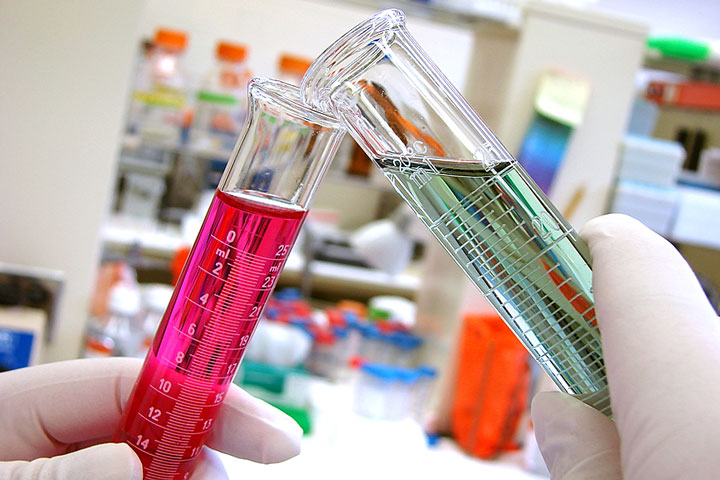David McCormack
Staff Writer
Industry funded research is more likely to yield positive results than trials funded independently. This has been the conclusion of innumerable studies comparing the published results of trials across many diverse areas in academia.
On the back of this statement, one would be forgiven for drawing the conclusion that private companies invest in research that stands a good chance of producing encouraging results and therefore the potential for successful marketing. The truth however is that private industry unfortunately lacks this clairvoyant sense of what trials will produce positive results. Instead, industry funded trials bearing unflattering results are often simply not published. This, on the surface does not seem like the most heinous of crimes. Indeed in some of the more abstract avenues of academia, little harm is caused by the practice. However, when vital research into life-threatening diseases goes unpublished, the results can, and have, been devastating.
In the 1980s it was hypothesised that prescribing anti-arrhythmic drugs to patients who had previously suffered a heart attack may be beneficial. This was based on the fact that heart attack sufferers often develop abnormal heart rhythms that are difficult to detect following a heart attack. This seemingly reasonable postulate was in fact flawed, and due to the prevalence of heart attacks, lead to the unnecessary deaths of over 100,000 people. These untimely deaths could have been avoided were the results of another trial simply published. The drug concerned was Lorcainide, a new anti-arrhythmic treatment. Lorcainide was used to test this premise in 1980, prior to the practice of widespread prescription.
“The pharmaceutical industry is not an isolated one with free reign to abandon all ethics in pursuit of profit. It is a network that depends on universities, private clinical research organizations, academic journals, ethics committees and governmental regulatory agencies.”
In a small trial of 95 men who had suffered a heart attack, 9 out of 48 men taking Lorcainide died compared with 1 out of 47 men taking a placebo. The drug was clearly commercially unviable. The trial results were never to be published. And indeed they weren’t until 1993 after the damage caused came to light. This was obviously scientifically inexcusable as the researchers withheld vitally important results. However, as Lorcainide was never marketed for this purpose some could argue that this was an unfortunate yet unintentional sin of omission. The case of reboxetine brings us down a much darker avenue. On the surface, reboxetine appeared a perfectly viable option in the treatment of depression. The published trial results of this drug showed that it performed better than a placebo and just as well as any other available antidepressant. Indeed it was and is prescribed by thousands of doctors and taken by hundreds of thousands of patients annually. Yet reboxetine’s efficacy has been wildly exaggerated. The cause of which was failure to publish the results of a further 6 trials all of which showed the drug to be no better than placebo. In fact these unpublished trials also demonstrated that reboxetine had the potential to cause serious side effects. This is a stark example of the kind of efficacy distortion intentional failure to publish trials can create. Reboxetine is still on the market.
The pharmaceutical industry is not an isolated one with free reign to abandon all ethics in pursuit of profit. It is a network that depends on universities, private clinical research organizations, academic journals, ethics committees and governmental regulatory agencies. All of which have the power and duty to prevent important data going unpublished. The simplest remedy for this issue has been the idea of pre-registering trials complete with full trial protocol. This would at least indicate the amount of trials going unpublished as well as identifying the guilty parties. Indeed several attempts by both the EMA (European Medicines Agency) in Europe and the FDA (Food and Drug Administration) in America to set up such registers have been made. However in the past the terms of these were either insufficient or else the proposed penalties never enforced. They were therefore largely ignored. These regulatory bodies are also often reluctant to release the data they do have for fear of media scaremongering and misinterpretation. Similarly, ethics committees, academic journals, and even university researchers who often sign contracts giving the industry sponsors full control over the publishing of trial data, are contributing to the problem. These behaviours must be permanently reversed to in order to force a change.
The problems associated with hidden trial data have been clear for 30 years yet an attitude of internalising the issue seems to have pervaded the industry. However, the recent swell in public awareness appears to be making a real difference. This has been evidenced by the EU’s new clinical trials regulations, which were agreed upon on the 20th of December 2013. These regulations, soon to be ratified, will introduce a publicly accessible register of all trials carried out in the EU. They will also impose fines on parties failing to extensively publish the results of these trials within one year. Pharmaceutical giants such as GlaxoSmithKline (GSK) also appear to be taking steps in the right direction.
GSK last year became the first “Big Pharma” company to launch an online portal where researchers are free to request data published from 2000 onwards. It has since been joined by companies such as Roche and Sanofi, who on the 2nd of January agreed to release trial data published from 2014 onwards. These are real omens for change. Yet these omens have been seen before. New regulations and positive Industry rhetoric are nothing new. In the past they have merely diffused the argument temporarily while doing little to impede the unethical practice. This is why public and political pressure must be maintained until there is undeniable evidence of promises being kept and legislation obeyed.






